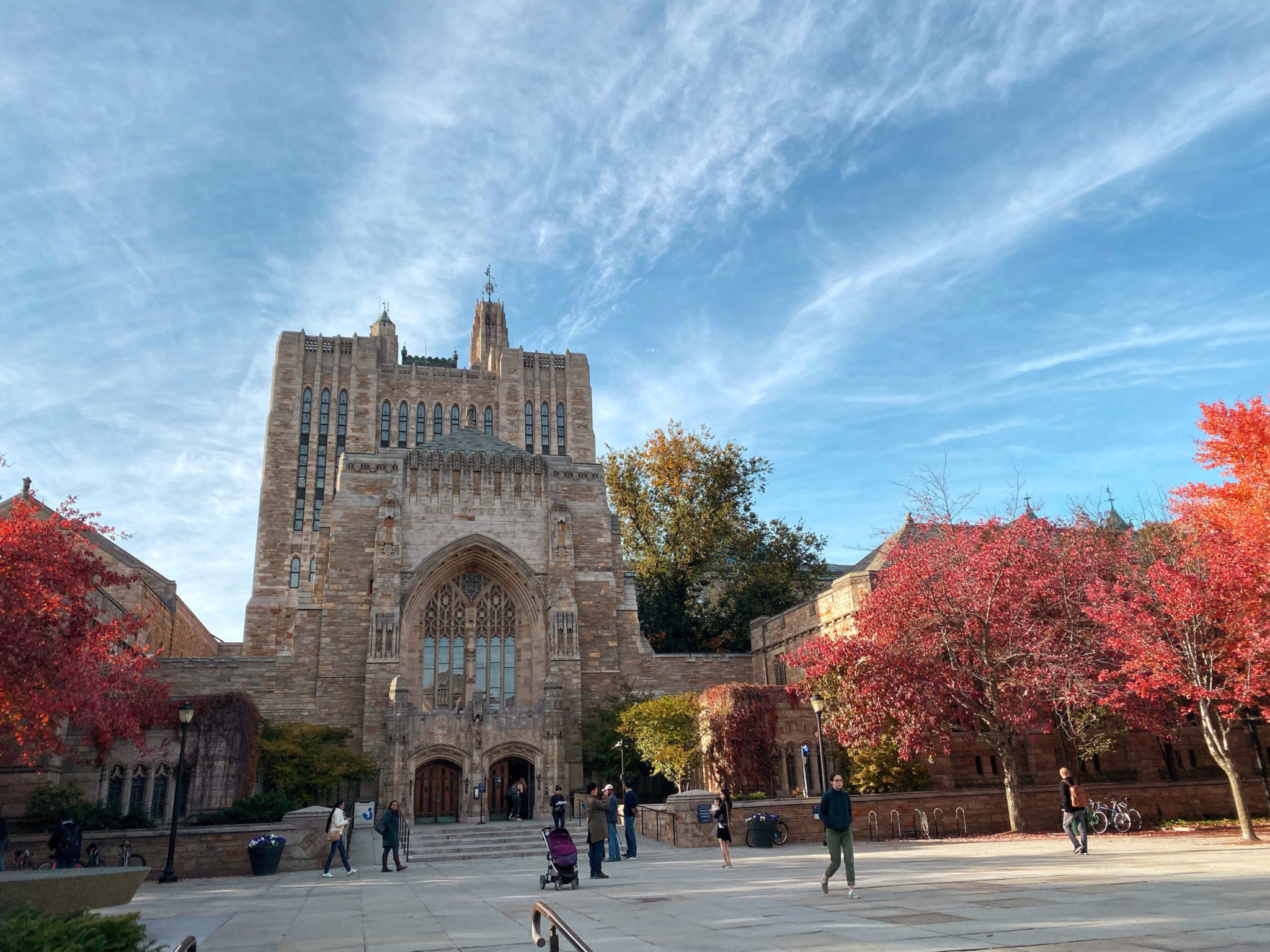
Vaibhav Sharma, Photo Editor
The Yale COVID-19 dashboard reflects that 21 positive cases were reported by the University on Wednesday — a record one-day high.
As COVID-19 case counts rise in the state of Connecticut, and on the heels of an outbreak among the Yale men’s ice hockey team, the University’s COVID-19 dashboard shows 21 new cases from tests conducted on Oct. 28. Of the 21 cases, nine are from students — seven of whom are graduate or professional students — and 12 are from faculty and staff. While the uptick in cases is alarming, University officials told the News that they do not currently view Wednesday’s increased case count as a localized outbreak.
“We have indeed seen an uptick in cases recently, as has our local region and the state,” chair of the Yale COVID Testing and Tracing Committee Madeline Wilson wrote in an email to the News. “While we are still in the process of performing the contact tracing for these Wednesday cases, so far they do not represent a cluster or clusters, but are instead largely the result of community spread in the setting of social events or gatherings taking place off campus.”
According to Wilson, the seven graduate student cases do not cluster in any single school, and the employee cases are “similarly distributed over a variety of settings.” While she hopes that the high case count on Wednesday was “an unusual blip,” the University will be monitoring trends over the next few days.
Although Yale tested more than double the usual number of faculty and staff on Wednesday — 652 as compared to an average of 290 over the previous four weekdays — Wilson attributes the increased testing to the fact that undergraduate students do not test on Wednesdays. Because of this, most of the University’s required employee testing takes place on Wednesdays.
Wilson also commented on the fact that more faculty, staff and graduate students have been seeking voluntary testing.
As part of her weekly email on Friday afternoon, University COVID-19 Coordinator Stephanie Spangler updated the Yale community on increasing case counts, both on campus and in the state of Connecticut.
Spangler detailed that Connecticut is now included in the states that are experiencing increases in cases and hospitalizations, and wrote that Governor Lamont has instituted a “yellow-orange-red” alert system for identifying the state of viral transmission across the state. New Haven was added yesterday to the list of communities at the “orange” level because of increasing cases.
And although Spangler wrote that the outbreak from two weeks ago “appears to be contained,” due to early identification of the infections and the efforts of public health and health care professionals working with Yale, she also acknowledged the recent increase in positive cases on campus.
“At Yale we have also experienced a recent increase in positive cases, and while they do not appear to represent new clusters or outbreaks, many are associated with off-campus social activities and gatherings,” Spangler wrote in the update.
As “a season of special events, including holidays and elections” approaches, Spangler encouraged the community to remain committed to abiding by the public health guidelines that protect the safety of the Yale community, including remembering to use health and safety practices and following University policies for events and parties.
Wilson similarly expressed hopes that members of the Yale community will take extra precautions to limit social gatherings.
“Activities in people’s private lives can spread to campus and impact friends and co-workers,” Wilson wrote to the News.
Emily Erikson, chair of the FAS Senate’s COVID-19 Crisis Committee, told the News that she did not receive any communications regarding the specific spike in faculty and staff numbers, but she did note that Connecticut cases also spiked recently, which she assumed was related to the increase in case numbers among Yale employees.
In total, the News spoke with four faculty members, none of whom received any information regarding a potential outbreak among faculty.
Brandon Felder, who previously worked at the Davenport College testing center, heard of at least seven confirmed cases this week among staff he knew, from both the dining hall and from different testing sites at the residential colleges. He mentioned that many more staff members, including the dining hall manager in Silliman College, are currently in quarantine.
Felder is now working at Jonathan Edwards College because of a confirmed case among employees at the Davenport site.
“I had a co-worker, who works at a testing site here on campus, reach out to me just last night to inform me that she had contracted COVID-19,” Felder said. “No, [the two employees] do not work at the same testing site, but regardless I think the recent uptick does create concern amongst individuals.”
Felder did not hear specifically of a COVID-19 cluster that might have led to the increase in testing numbers and positive cases, but he did tell the News that the increasing numbers on campus feel inevitable, as numbers are rising in Connecticut and across the country.
He empathized with the University and the decisions that they will need to make in the future regarding coronavirus restrictions and policies, but he also felt as though Yale is only harming students and employees by continuing to keep the campus open.
“It will only get worse from here,” Felder said. In a follow-up message after Felder learned of two new employees who tested positive, he added that “people are worried.”
As of Oct. 30, the University is reporting 109 cases since Aug. 1. Wednesday’s cases alone make up nearly 20 percent of the total positive cases.
Julia Bialek | julia.bialek@yale.edu
Madison Hahamy |madison.hahamy@yale.edu







